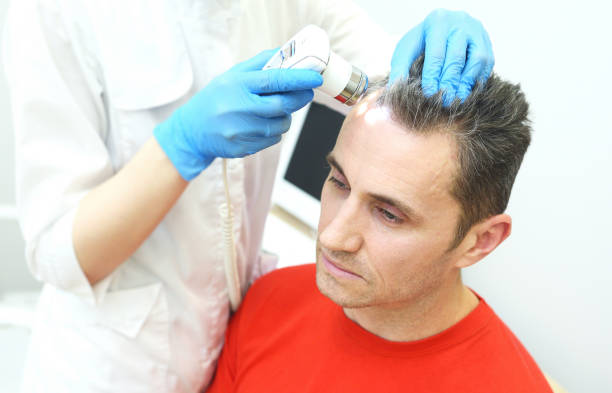Scalp Psoriasis Explained: Symptoms, Causes, and Relief Options
Scalp psoriasis is a chronic skin condition that can cause itching, flaking, and discomfort. In this article, we explore the key symptoms, possible causes, and treatment options that can help manage flare-ups and improve your quality of life without making exaggerated claims

What are the common symptoms of scalp psoriasis?
Scalp psoriasis manifests in various ways, with symptoms ranging from mild to severe. The most common signs include:
-
Red, inflamed patches on the scalp
-
Silvery-white scales or plaques
-
Intense itching and burning sensation
-
Dry, flaky skin that may resemble dandruff
-
Hair loss in severe cases
These symptoms can extend beyond the hairline, affecting the forehead, neck, and around the ears. In some instances, the entire scalp may be covered, leading to significant discomfort and self-consciousness.
What triggers scalp psoriasis flare-ups?
Understanding the triggers of scalp psoriasis is crucial for managing the condition effectively. While the exact cause remains unknown, several factors can provoke or exacerbate flare-ups:
-
Stress: High levels of stress can trigger or worsen psoriasis symptoms
-
Skin injuries: Cuts, scrapes, or sunburns can lead to new psoriasis patches
-
Infections: Strep throat and other infections may trigger outbreaks
-
Cold, dry weather: Harsh weather conditions can aggravate symptoms
-
Certain medications: Beta-blockers, lithium, and antimalarial drugs may worsen psoriasis
-
Alcohol consumption and smoking: Both can increase the severity and frequency of flare-ups
Identifying personal triggers can help individuals better manage their condition and reduce the occurrence of flare-ups.
What are the most effective treatment options for scalp psoriasis?
Treatment for scalp psoriasis aims to reduce inflammation, remove scales, and slow down skin cell growth. The most effective options include:
-
Topical treatments: Corticosteroids, vitamin D analogs, and retinoids applied directly to the scalp
-
Medicated shampoos: Products containing salicylic acid, coal tar, or ketoconazole
-
Systemic medications: Oral or injectable drugs like methotrexate or biologics for severe cases
-
Phototherapy: Controlled exposure to UV light to slow skin cell turnover
-
Combination therapy: Using multiple treatments for enhanced effectiveness
The choice of treatment depends on the severity of symptoms, overall health, and individual response to different therapies. Consulting a dermatologist is essential for developing a personalized treatment plan.
How can you manage scalp psoriasis flare-ups at home?
While professional treatment is crucial, there are several ways to manage scalp psoriasis symptoms at home:
-
Gentle scalp care: Use lukewarm water and avoid harsh scrubbing
-
Moisturize regularly: Apply fragrance-free moisturizers to reduce dryness and itching
-
Stress management: Practice relaxation techniques like meditation or yoga
-
Healthy lifestyle: Maintain a balanced diet and exercise routine
-
Avoid triggers: Identify and steer clear of personal triggers
-
Over-the-counter treatments: Use coal tar or salicylic acid products as directed
These home remedies can complement medical treatments and provide relief during flare-ups. However, it’s important to consult a healthcare provider before starting any new treatment regimen.
What daily care routines are recommended for scalp psoriasis?
Establishing a consistent daily care routine can significantly improve the management of scalp psoriasis:
-
Gentle hair washing: Use lukewarm water and mild, fragrance-free shampoos
-
Scalp moisturizing: Apply medicated or natural oils to keep the scalp hydrated
-
Careful hair styling: Avoid tight hairstyles and harsh styling products
-
Sun protection: Use SPF on exposed scalp areas to prevent sunburn
-
Regular brushing: Gently brush hair to remove loose scales without irritating the scalp
-
Stress reduction: Incorporate stress-management techniques into daily life
Consistency in following these routines can help control symptoms and improve overall scalp health.
What are the latest advancements in scalp psoriasis treatment?
Recent developments in scalp psoriasis treatment offer new hope for those struggling with the condition:
-
Biologics: Targeted therapies that modulate the immune system
-
JAK inhibitors: Oral medications that block specific enzymes involved in inflammation
-
Nanotechnology: Enhanced delivery systems for topical treatments
-
Light therapy devices: At-home phototherapy options for convenient treatment
-
Personalized medicine: Tailored treatment plans based on genetic profiles
| Treatment Type | Provider | Key Features | Cost Estimation |
|---|---|---|---|
| Topical Steroid | Various pharmaceutical companies | Reduces inflammation and itching | $10 - $50 per tube |
| Medicated Shampoo | Neutrogena, MG217, Dermarest | Contains coal tar or salicylic acid | $10 - $30 per bottle |
| Biologic Drug | AbbVie (Humira), Amgen (Enbrel) | Targets specific parts of the immune system | $1,000 - $5,000 per month |
| Phototherapy | Dermatology clinics | Controlled UV light exposure | $50 - $250 per session |
Prices, rates, or cost estimates mentioned in this article are based on the latest available information but may change over time. Independent research is advised before making financial decisions.
While scalp psoriasis can be challenging to manage, a combination of medical treatments, home care, and lifestyle adjustments can significantly improve symptoms and quality of life. Stay informed about new treatments and work closely with a healthcare provider to find the most effective management strategy for your individual case.
This article is for informational purposes only and should not be considered medical advice. Please consult a qualified healthcare professional for personalized guidance and treatment.




